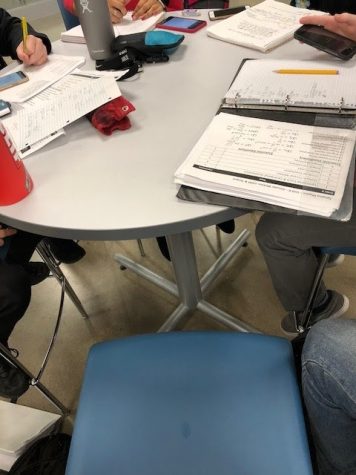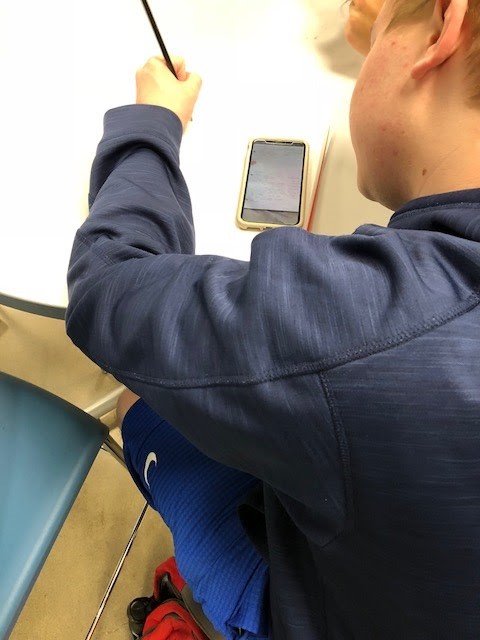Are AP Classes Helping or Hurting?
January 25, 2018
At Tahoma High school there is a ton of AP classes that are offered, but there isn’t really a balance. Freshmen are offered the lowest number, sophomores the second lowest, as a junior you have all classes available and same goes for seniors. If the majority of classes were open to all grades would that offer a better balance throughout a student’s high school career?
Of course, there are things that cannot be offered until later in high school since some AP classes require students to have already taken the prerequisite to that class.
In many cases, students feel the need to take lots of AP classes in order to make the transcript that they will send to colleges more appealing, but if the majority of AP classes are not offered until junior year, it leads students towards creating a very difficult workload.
During my college application process, I had been talking to an admissions representative from Syracuse University and she told me that if your GPA meets their requirement, then it really doesn’t matter the number of AP classes that you took.
A lot of high school students think that if you take a schedule full of AP classes every year of high school that colleges will be impressed and while some of that is true they will only be impressed if your GPA meets or exceeds what they expect.
Don’t get me wrong having AP classes on your transcript is great but if you do not thrive and succeed in those classes then no college will pay attention. The first thing that colleges will even look at is the GPA of a student then maybe after that, they will pay more attention to the type of classes.
I talked to different students in the senior and junior classes, as well as some students that have already graduated. I asked them that if there had been more AP class openings earlier in their high school career, do they think that would make a difference in the success they achieved. And whether or not they think there should be a limit on how many AP classes a student can take per year.
“No, there shouldn’t be a limit it should be a choice,” is what junior Avery Simpson had to say about the matter. She felt that students should be able to hold themselves accountable as well as know their limit and be able to make the right decision on which classes to take based on those two aspects.

I was also able to talk to former Tahoma students who have already graduated, Hannah Grant, now a student at Whitworth University in Spokane had this to say.
“The AP class load is a lot to take in, but I have no doubt in my mind that AP classes helped give me a taste of what real college class might be like…9th graders should not have a schedule full of AP’s right away, this should be something that they build upon as they get used to what an AP class is like. After their first year if a student is willing to challenge themselves by taking a schedule full of AP classes, more power to them.”
Hannah felt that after the 9th grade all AP classes excluding those that require prerequisite courses should be open to 10th graders.
For seniors, I was able to talk to Nick Dazell and Brody Magbaleta.
“I think more AP classes should be available as an underclassman. I only took 1 AP class as a freshman, that was all that was available to me as a freshman,” said Dazell about the AP class distribution.
Brody Magbaleta had a different perspective on the topic and decided to talk about the teaching of the AP classes.
Brody thought that more AP classes should be available to underclassmen but that they should not just assign teachers to teach the classes. “I think teachers should be certified to teach AP classes,” said Magbaleta
As of now the College Board doesn’t require teachers to receive special certification to teach AP level classes, however, certain training resources are strongly recommended for teachers looking to teach AP classes.
My sister Jessica Grant, who attended Colgate University in upstate New York, was surprised by the level of IB classes that students from other states had taken.
According to Halle Edwards from blog.prepscholar, the IB program is an education program that students all over the world can use for acceptance into universities and colleges.
Based off the fact that there are 1,803 schools in the U.S. that offer IB programs along with AP programs, in order to give our students the best education that we possibly can, there should clearly be more AP class offerings for underclassman grade levels.
IB classes are more common on the east coast of the U.S., but there are many west coast kids that end up at schools on the east coast, and in order to compete with the IB level courses that the kids already on the east coast are taking, Tahoma should either open up more AP classes for its students earlier in the education process, or they should offer new AP classes.
I know that they already added a ton of new classes with the new school but with the 8-period schedule, there is no reason not to add more AP classes that provide students with a new and different learning opportunity.



